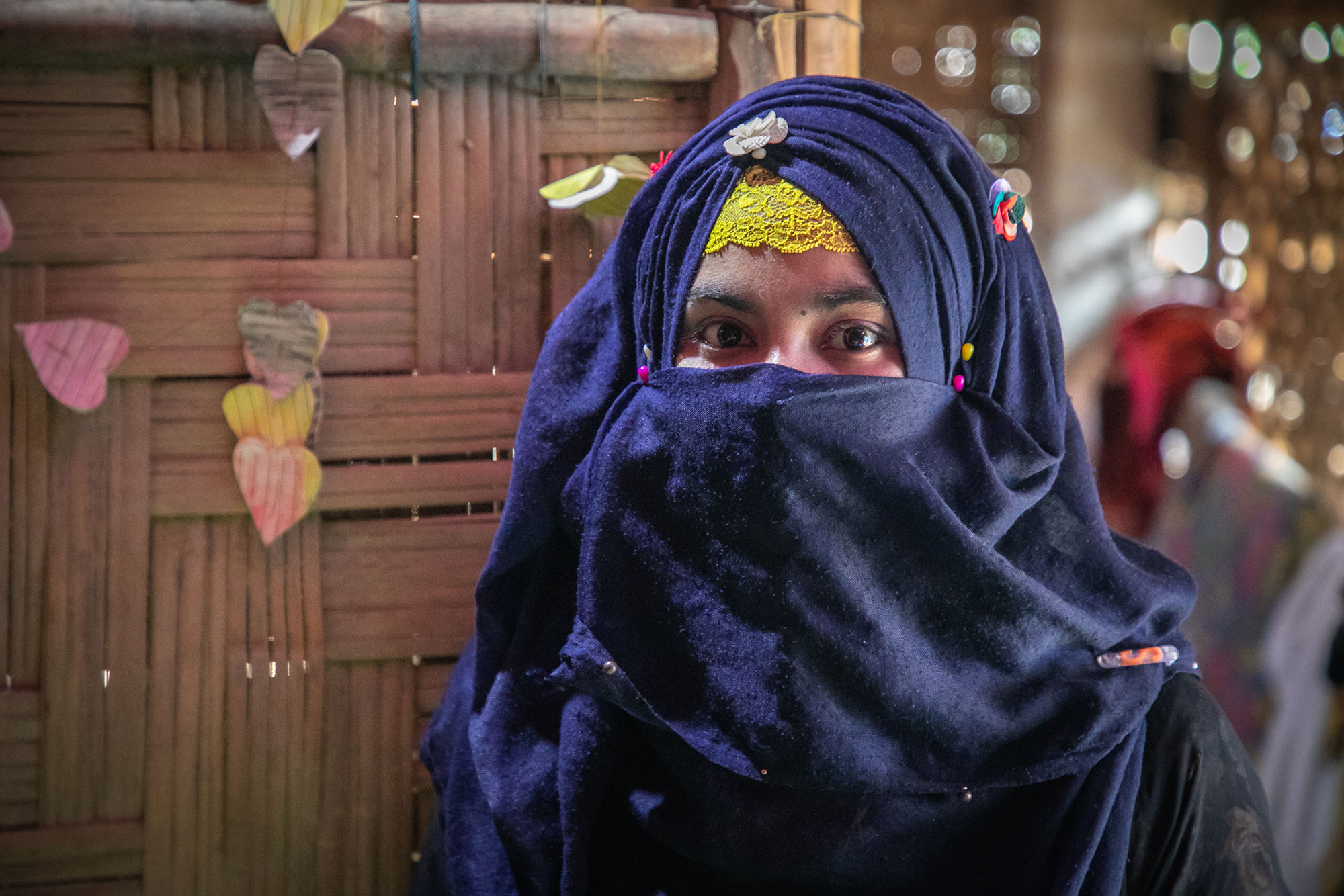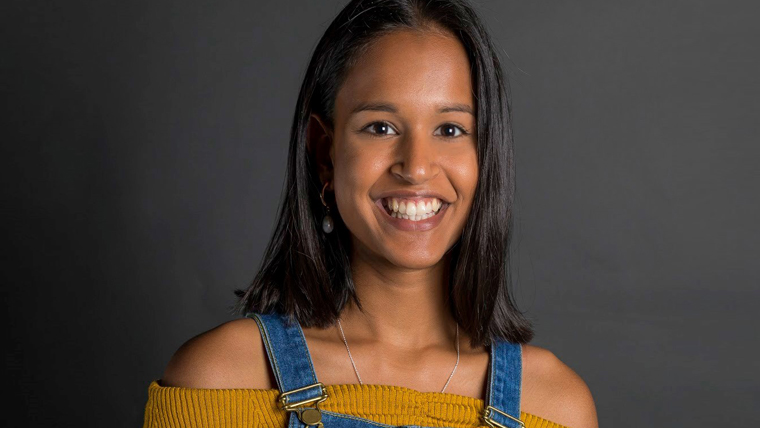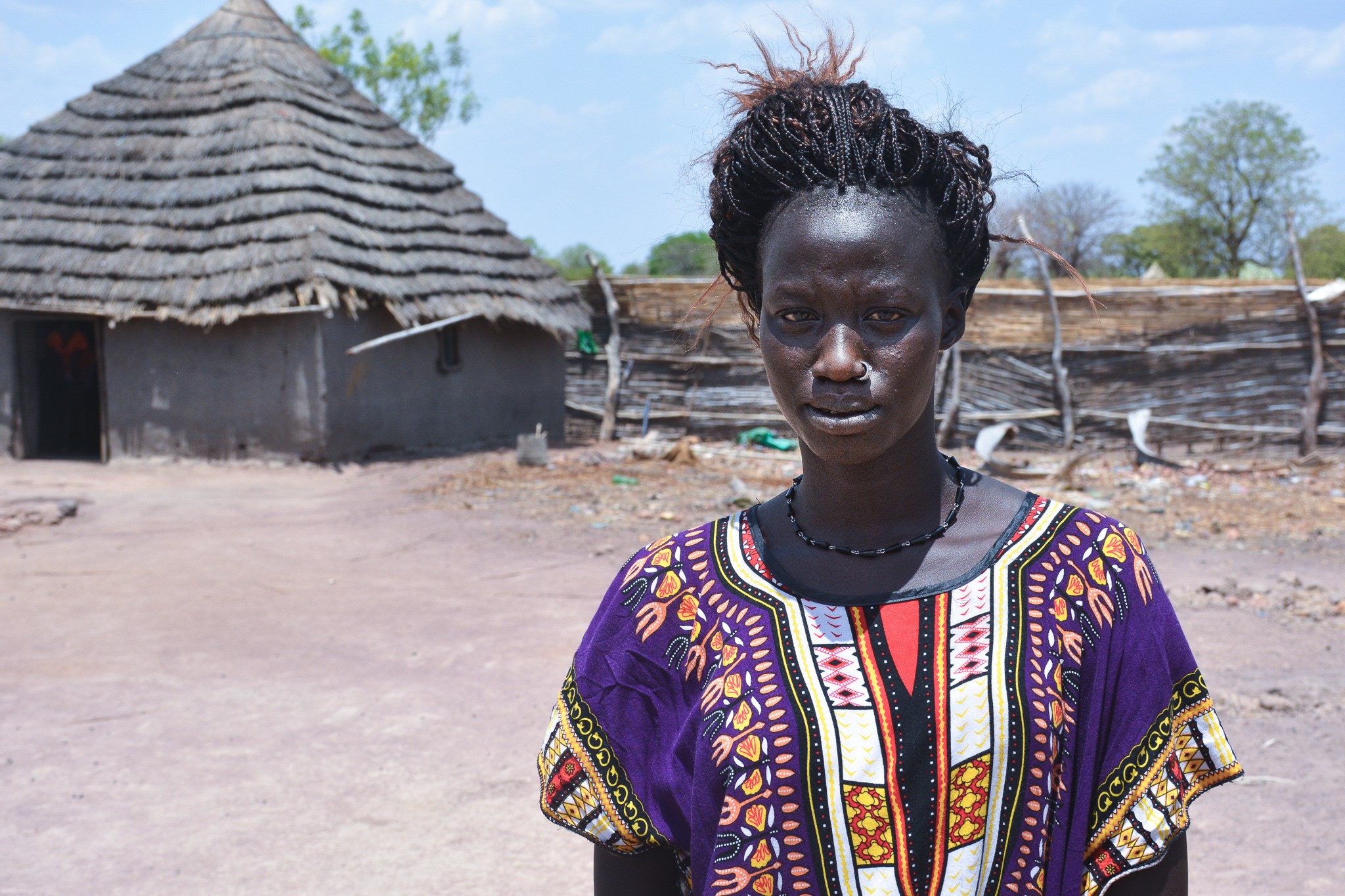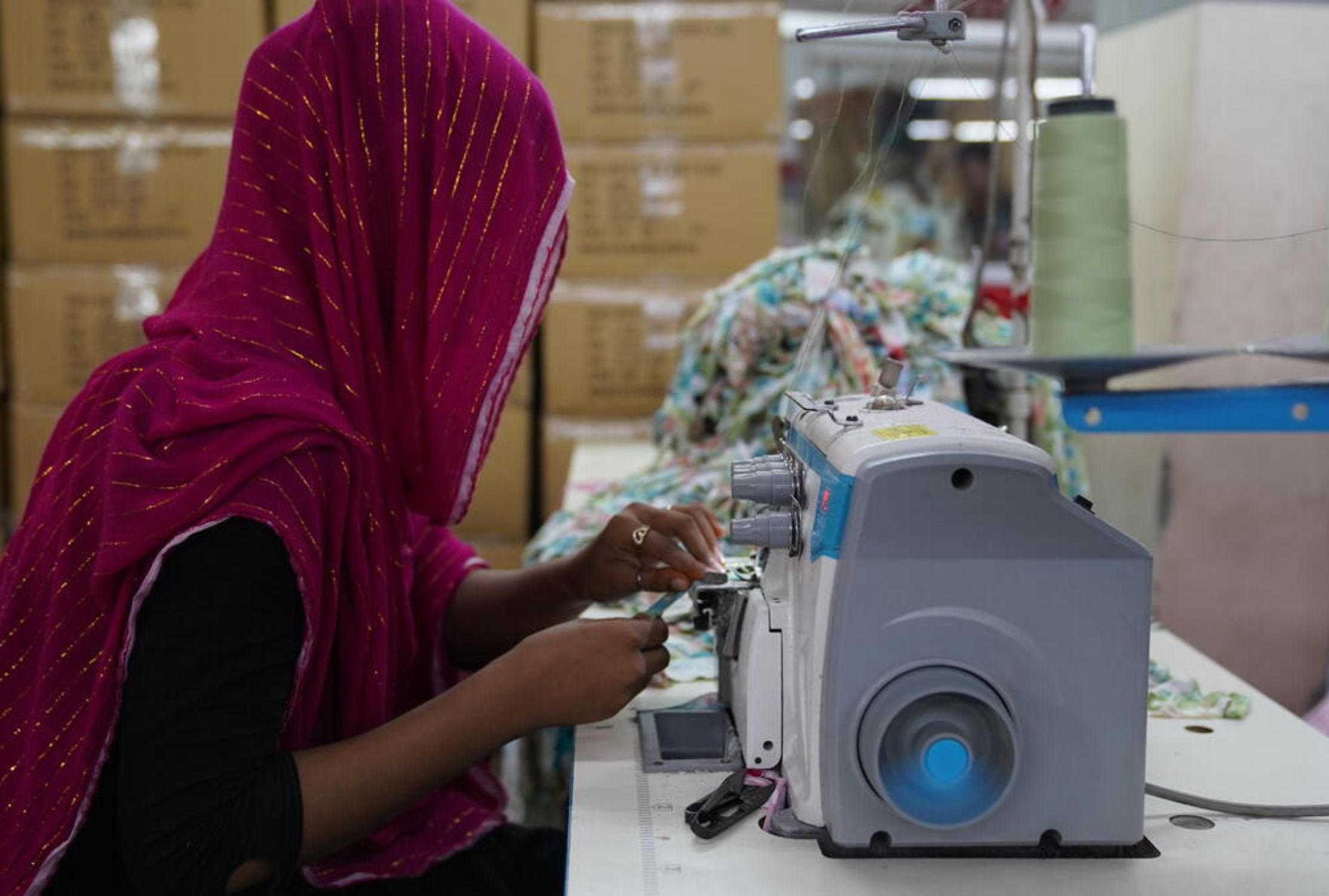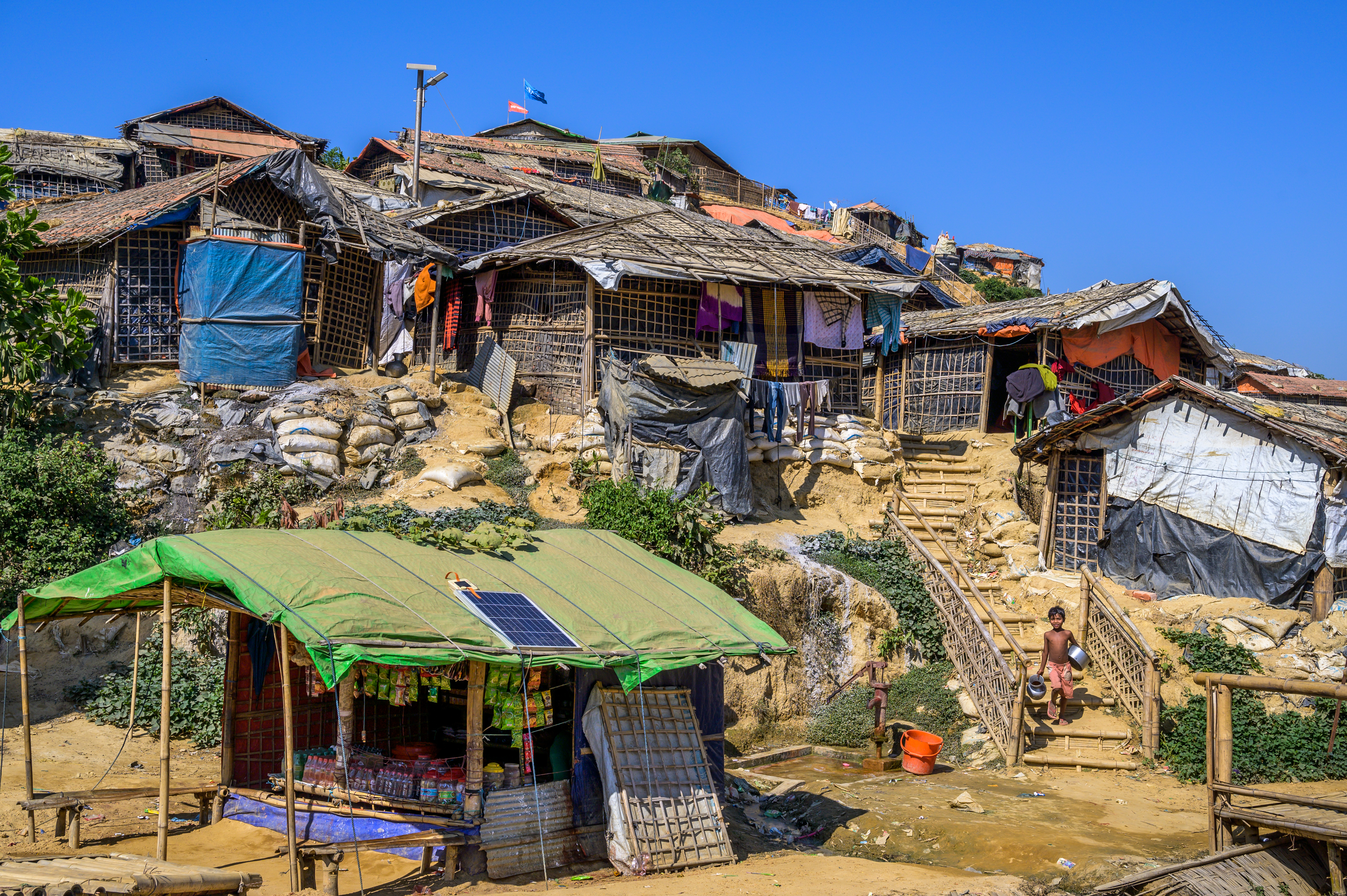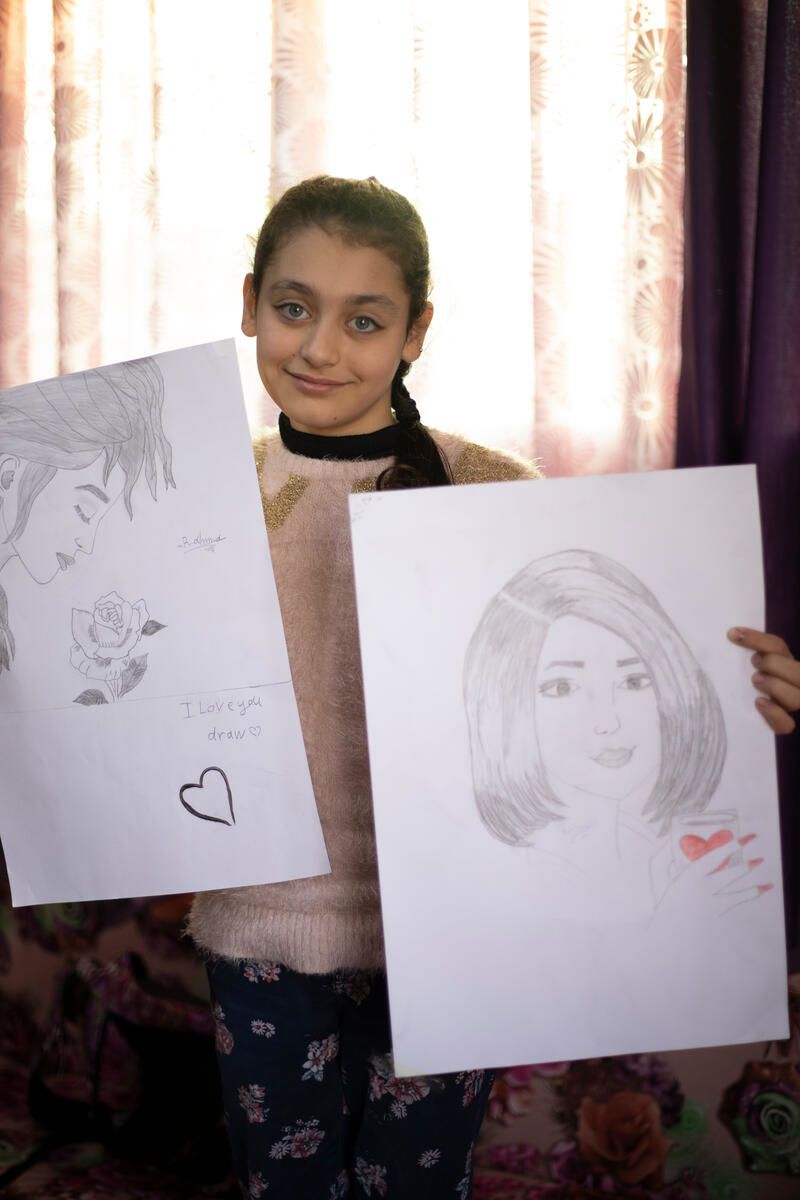Child brides and gender inequality
For many young refugee girls, getting married seems to be the only way to survive.
Although Parvina got married willingly, believing it would lead to a better life for her, child marriage usually involves a younger girl and an older man, who may be violent towards her. Girls can be forced into marriage because of poverty; for their own perceived protection in situations like natural disasters or conflict; because they aren’t seen as equal to boys; and often because they are felt to be a financial burden. Girls are often put under pressure to get married against their will. Many may run away; some may even attempt suicide.
In refugee camps such as those in Cox’s Bazar, Bangladesh, instances of sexual violence are common when girls go to collect water. Walking miles to get to the nearest water point creates fear and insecurity for girls and their parents. The parents’ response is often to marry them off to protect them from further violence and to protect the family’s honour.
The issue of child marriage is complex. It is closely linked with both poverty and insecurity, and is worsened by conflict and displacement, which is why the numbers are so high in refugee communities. The Covid pandemic created a new fear and caused the rates to rise sharply.
An end to child marriage
With your support, World Vision is making a long-term commitment to tackling child marriage. We are doing this by working with parents and communities to challenge the attitudes and social patterns that encourage gender inequality and child marriage. We are also educating and equipping girls, and boys, with life skills so that they can speak up for themselves and have a say in decisions about their futures.
Thanks to the generosity of people like you, a number of Safe Zones have been created for women and girls at the refugee camps in Cox’s Bazar. Here are some personal stories of change:


